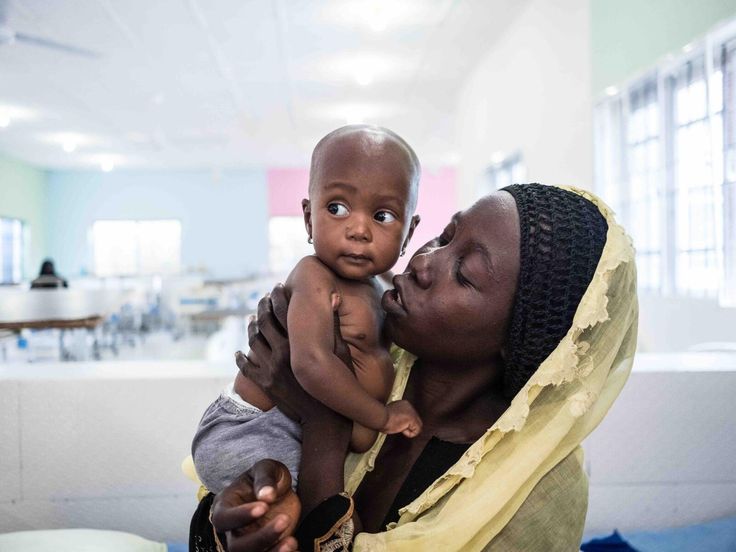Maternal healthcare literally refers to the care offered to women during pregnancy, childbirth and postpartum stage. This healthcare is important to preserve the lives of pregnant women, ensure safe abortion, reduce damage and loss of lives during childbirth, and nurture healthy children. Maternal care services include ante-natal, post natal and immunization which is meant to be delivered by professionals in well- equipped hospitals, clinics or maternity centers.
Despite global advocacy, goals and targets to ensure maternal healthcare is enjoyed by every woman, the maternal mortality rate in Nigeria has increased, especially in rural areas. According to the United Nations International Children’s Fund (UNICEF), Nigeria has the second highest maternal mortality rate worldwide with 576 per 100,000 live births which is below the recommended 70 per 100,000 live births. In addition, the country accounted for 10% of the global deaths for pregnant women in 2023 with over 262,000 babies’ deaths recorded each year.
Assessing maternal health care in rural areas can be so challenging due to lack of well- equipped facilities, shortage of health workers/professionals, poor maintenance of medical equipment, lack of basic amenities (like motorable roads, electricity, water) , poor policy implementation, insufficient funding and irregular release of funds. However, in most cases, urban areas tend to benefit more because they are often prioritized by the state and any form of assessment starts from major cities that can easily be cited and popularly known compared to remote areas.
A research work published on the research gate revealed that 40.5% of the 42.50% of the people that were surveyed in some rural areas of Ogun State traveled 9 – 15 km before accessing health care facilities. Furthermore, a report published by the BusinessDay estimated that 253,000 Nigerians die annually due to lack of access to health care, with rural areas bearing the higher percentage of these deaths due to unavailability of medical personnel, lack of medical facilities, and persistent preventable diseases.
In an investigative story republished by the International Centre for Investigative Reporting (ICIR) highlighted the poor conditions of health centres in Gboko and Ohimini communities of Benue states which have caused deaths of pregnant women and children under the age of 5 years old. Although the state government allocated 15% of the total budget to the health sector, poor fund reimbursement remains a major problem. The health centres also suffer skilled workers though a scheme to recruit fresh health professionals graduate and make them serve for 2 years was initiated by Gabriel Suswam administration (2007- 2015), the idea was canceled by Samuel Ortom (2015- 2023) administration which claimed that the programme is unsustainable. This novel idea is yet to be revived by the incumbent administration.
Similarly, residents of Odo-ode and Igbokoro Afon communities under Asa Local Government Area of Kwara State have suffered and lost lives due to abandoned health centres and basic amenities like good roads and electricity. Stories of how residents trek far distances to access health care and how pregnant women and women in labour opt for available private hospitals which cost them out of pocket money were told in the investigative piece by the Sahara Reporters. In addition, Sholu and Sapati communities which are also under Asa LGA suffer the same fate. The health centres in these communities are non-functional due to shortage of professional staff and equipment and have subjected pregnant women and elderly people to trek several miles before they access ante-natal and basic medical treatment. Sometimes, pregnant women give birth at home because of a lack of medical personnel.
The Cables report is another piece of evidence of government negligence and misplaced priorities that has cost lives in rural communities or subject pregnant women to unbearable conditions. This report featured the deplorable state of some health centres in rural communities of Gaya, Gwarzo and Rogo Local Government Areas of Kano State. Although the Kano State government has been allocating up to 15% of its annual budget to the health sector between 2019 and 2023, a 7.3% decrease was noticed in 2024. Despite these allocations, poor cash releases hampered healthcare delivery. In one case, a pregnant woman was forced to trek several miles for ante-natal care after stopping the use of motorcycles, which had previously caused her miscarriages. Even after the long trek, she would have to endure a long queue before being attended to. This is one of the plights reported in the story.
The referenced investigation mentioned above imaged the pitiful state of maternal healthcare in rural Nigeria and it calls for urgent need for targeted interventions. Despite budgetary allocations and advocacy efforts, the realities on the ground reveal a system plagued by inadequate infrastructure, shortage of healthcare professionals, poor funding practices, and persistent neglect of rural communities, most especially in the North East and North West of Nigeria.
To minimize maternal and child mortality rates, there must be an intentional focus and commitment on strengthening primary healthcare systems in remote areas, ensuring targeted allocation of funds and timely disbursement to the health sector.
Although some states such as Kano, Kaduna, Benue, Borno, Yobe, Abia have allocated up to 15% of their annual budgets to the health sector in 2024 and 2025, there has been no reported progress in implementation. However, the Federal Government and States across Nigeria can emulate Rwanda’s approach, not only does Rwanda consistently meet the targeted 15% but also sketch out clear implementation plans. Importantly, documents outlining the steps and progress made by the country are also made available to the public. This shows the country’s transparency and accountability ability. It is also pertinent to note that International Organizations commended their efforts toward achieving Universal Health Coverage (UHC), which serve as a pathway to collaboration and support to the country.
Retaining skilled health workers through strategic policy and consistency had a great impact on Thailand where it has proven to significantly enable easy access of healthcare services to rural areas and reduce health inequality. They achieved this through collaboration with universities and hospitals across the country. It further supported healthcare workers by providing a sustainable work environment and condition, incentives and promotion particularly for doctors working in rural areas for at least 3 years.
Cuba is another country that stands out for its exceptional doctor-to-patient ratios averaging 9 doctors per 1,000 patients. This global achievement is as a result of policies to make the health of citizens a national priority. The Cuban government offers free medical education in exchange for a mandatory national service, to ensure a constant and consistent workforce.
Investing in basic amenities like access to potable water and constant power supply also play a crucial role in healthcare delivery. For instance Ojudu Local Government Development Area of Lagos State in partnership WaterAid Nigeria and supported Kimberly Clark Integrated Health and Hygiene conducted several impact driven projects. The projects done did not only involve renovating and upgrading equipment in Primary Health Care centres in the community but also providing solar-powered boreholes at each PHC to improve sanitation. Solar powered inverters are also provided for PHCs to keep functioning regardless of the epileptic power supply. The establishment of new PHCs created employment to many medical personnel. It is worth noting that under the leadership of the Chairman Hon. Olusegun Odumbuka, road construction and rehabilitation projects were done, which has improved easy access to health care centres.
The persistent maternal health crisis in rural Nigeria is not merely a health issue rather, it is a reflection of systemic neglect, poor governance, and misaligned priorities. Despite significant allocations to the health sector by some states, weak implementation, irregular fund disbursement, and infrastructural decay continue to undermine progress. The experiences from Rwanda, Thailand, Cuba, and local successes like Ojudu LCDA demonstrate that with strong political will, transparent funding, and consistent support for healthcare workers and infrastructure, measurable improvements in maternal outcomes are achievable.
To turn the tide, Nigeria must move beyond budget declarations to tangible results starting with the revitalization of rural primary healthcare systems, retention of skilled personnel, and targeted investment in health-enabling infrastructure. Until these issues are systematically addressed, rural women will remain trapped in a cycle of preventable suffering and death, and the country risks falling short of achieving the Sustainable Development Goals (SDGs), particularly Goal 3 on good health and well-being, by 2030. The time for coordinated, inclusive, and accountable action is now.

Lawal Sofiyyat Bolanle
Lawal Sofiyyat Bolanle is a freelance journalist with interest in education and healthcare sectors' policies

